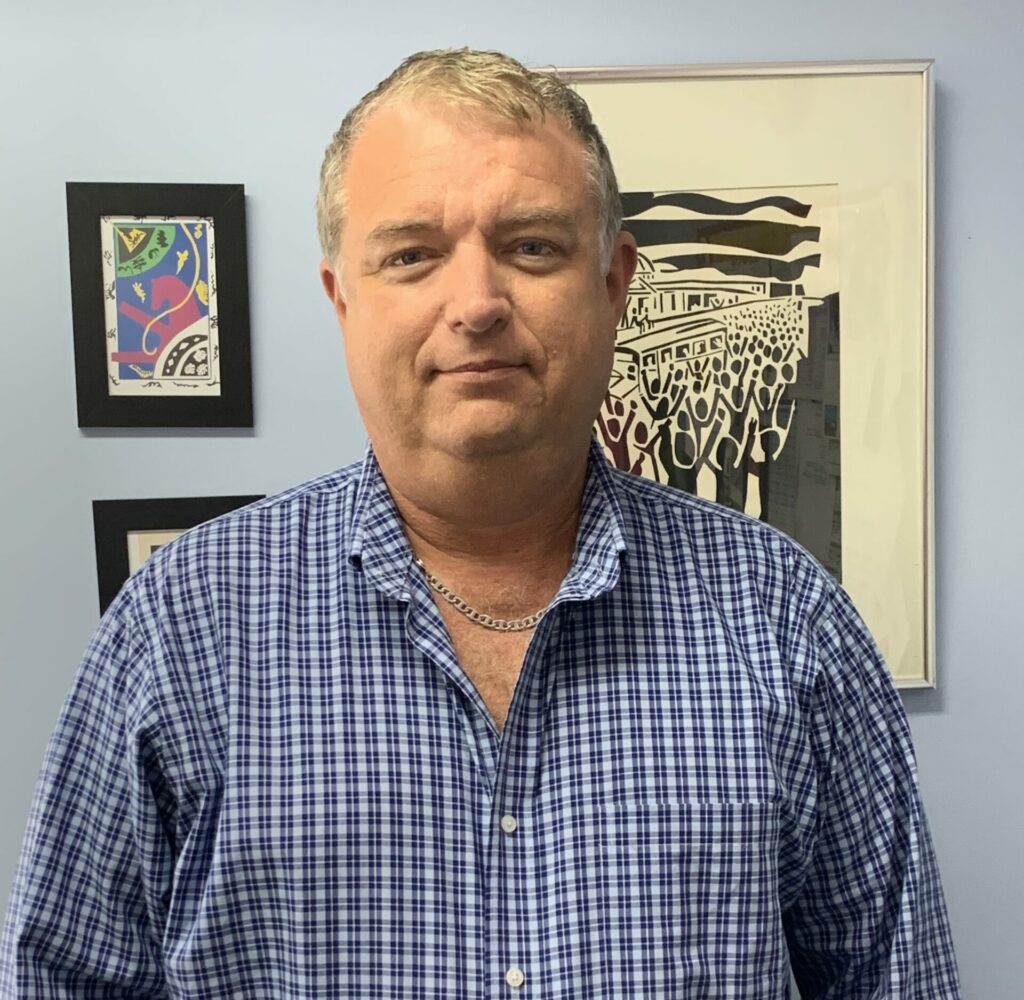Jeff Morrissey
Jeff Morrissey is a member and vice president of the Bridgeport Education Association in Bridgeport, Connecticut. He’s been an English teacher in Bridgeport since 1998 and is involved in the local Carbon-Free and Healthy Schools campaign.
How did you get involved with your union and how did you eventually become the vice president?
I come from a union family—my dad was a US postal worker for many, many years and was involved in his Local. When I was hired as a teacher, I was encouraged to join the union. About two years after I was hired, I became a union delegate at the school level. In 2014, I decided to run for high school vice president position and I held that position for two three-year terms, a total of six years. Following that, I ran for first vice presidency in 2020, right before the pandemic began.
Why is being a union member important to you?
It’s important to be a part of an organization that looks out for its members’ best interests. And it’s important to have peoples’ backs and listen to each other. Unions are important, no matter what you do. Collective bargaining is an enormous benefit because you can bargain for things like higher wages and safer worker conditions, but you can go farther and bargain for greener and healthier schools overall. Being in a union allows us a collective voice to defend our rights, uphold our contract, and advocate for clean air in schools.
We know carbon-free schools are vital for creating healthier and safer Bridgeport schools. Can you expand on why the work you do is necessary for your community?
In particular, school buildings must be a safe environment for everyone. Teachers, students, partners, staff, visitors—everyone should have the right to enter a building and not be exposed to anything that will make them sick or introduce long-term illness that can come from mold, mildew, or toxic materials. You shouldn’t even be concerned about those kinds of things when you enter a school. Students should just be able to learn and school workers should be able to do their jobs without health worries.
Have you noticed any ways in which your members’ jobs have become harder because of the climate crisis, especially in the recent back-to-school season?
We begin in August, in the heart of the summer. The heat is definitely an issue and makes our members’ jobs harder and the excessive temperatures plague us. Some of our buildings have no air conditioning at all. The heat makes it difficult for teachers to teach and for students to learn.
Even when there are HVAC systems, they can go down sometimes from lack of maintenance over the years. When you’re getting five to seven days in a row of high temperatures, they’ll just go down. Even the HVAC systems of the newer, temperature-controlled buildings can go down, but they aren’t built with as many windows as the older buildings, so when there’s no AC there isn’t even the benefit of air flow like in the older buildings. HVAC repairs can take at least seven to 10 days, especially with the slower supply lines as a result of the pandemic. Repair requests are taken on as fast as possible, but sometimes it’s just out of our hands.
How do you think the recently passed Inflation Reduction Act (IRA) will affect the Carbon-Free Healthy Schools campaign?
I think the IRA is going to have a substantial effect on our campaign for Carbon-Free and Healthy Schools in Bridgeport. There’s going to be a lot of infrastructure investment [under] this legislation, especially in high-need communities, like Bridgeport. Investing in our schools and upgrading them will be a win for sure. There’s a lot of work to do, but I think the IRA definitely means we’re heading in the right direction.
This interview has been condensed and edited for content and clarity.

